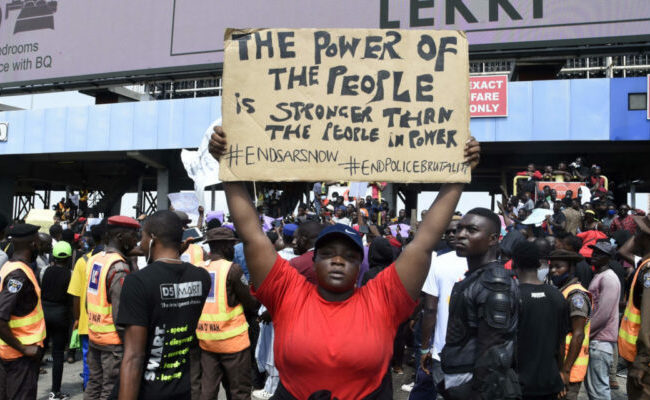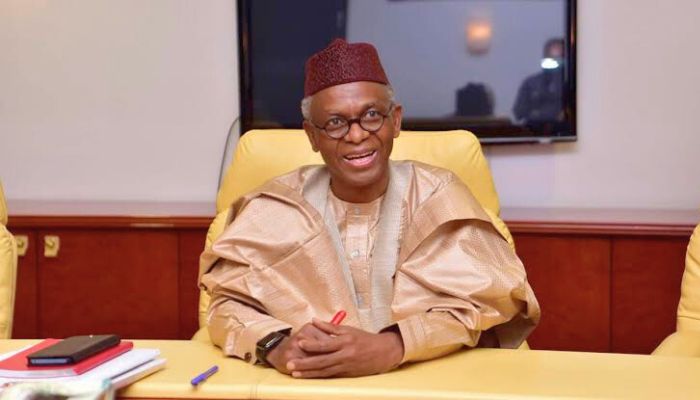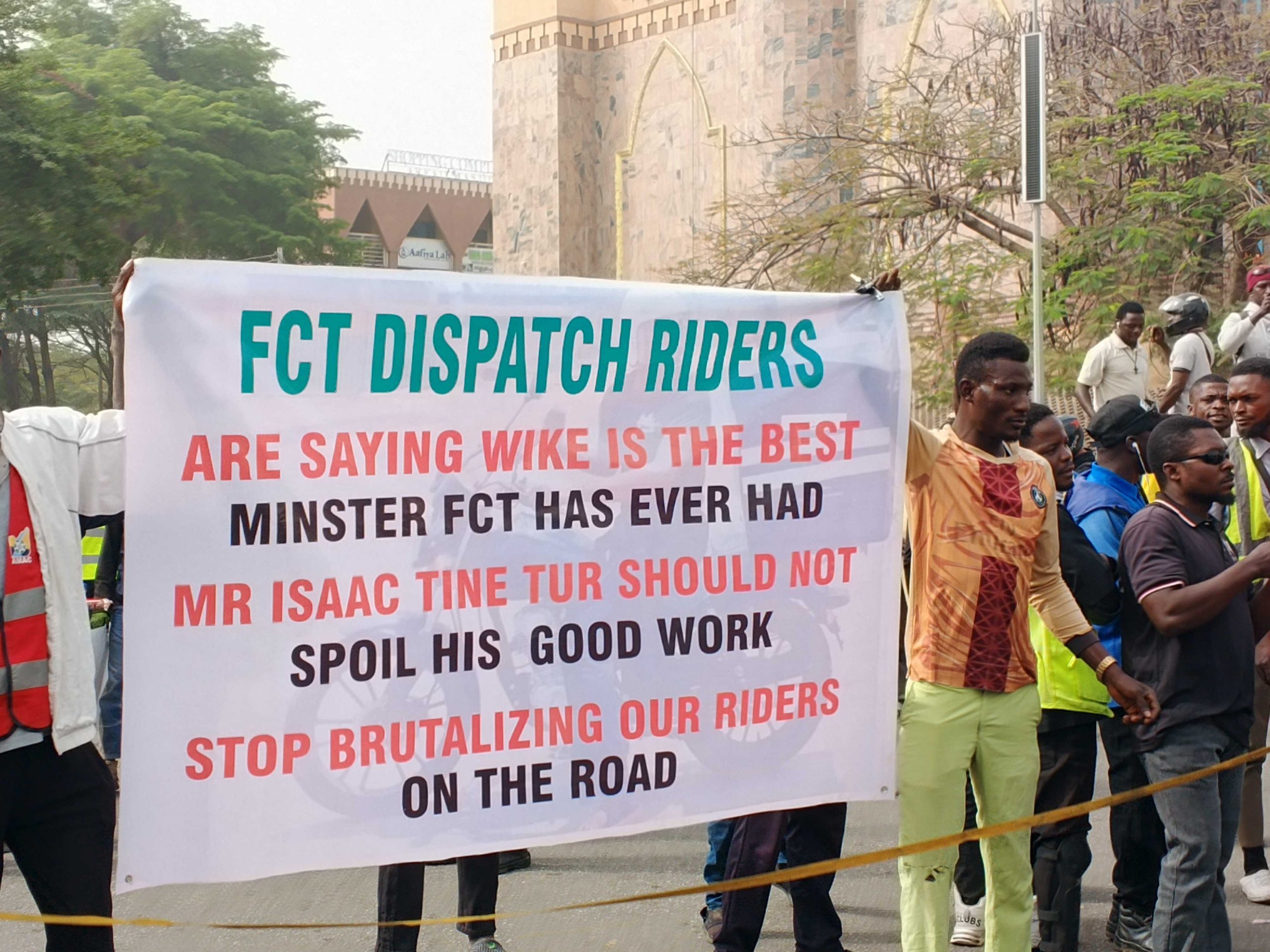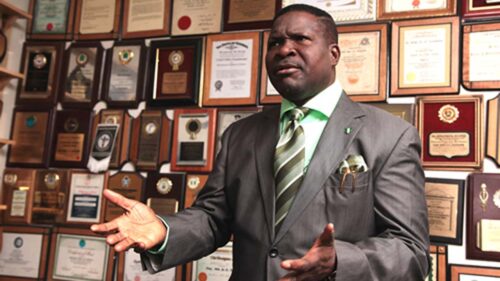OPINION: #ENDSARS protest (1): The buildup

By Isaac Chii Nwaogwugwu
The fragile state of the Nigerian social, political and economic stronghold is being challenged by a generation that has shocked everyone including themselves in confronting the very primary instrument of operation of the internal colonisers. Interestingly the signs of the impending crisis were conspicuous even to the blind. The political ‘dealers’ who call themselves ‘leaders’ preferred to look elsewhere in their typical hypocritical fashion. So, as it were, many did not see it coming.
The Inspector General of Police did not see it. The Department of State Services did not as well. That was also the case with the Department of Military Intelligence as well as other security operatives in the country. The thickly clouded sky also eluded the radar of the international security operatives who therefore had no information to share with their Nigerian counterparts. But the signs were there for everyone to see.
We just refused to see them. When the classical economists like Adam Smith, David Ricardo and J.S Mill theorised the efficacy of free market ideology and right to private means of production and distribution over two centuries ago they regarded the state as a necessary evil that must be caged by all means. Hence they assigned minimal role to it and in the process limited public financial operations. The government was seen as an economic and social destabiliser.
It was an embodiment of distortionary behaviour. Embedded in that theorising was also the concept of the survival of the fittest, which is the basis of all brutal intrinsic and extrinsic capitalist intentions principally of which are exploitation, extortion, class supremacy, increased inequality, domination and control and oppression, suppression, subjugation, dehumanisation, hypocrisy, enslavement, deceit, rent seek-seeking and profit. Nigeria, although without adequate manifestation of capitalists principles at the dawn of independence in 1960 embraced the pungent elements of that ideology. The seed of the fruits to be harvested in the future was sowed.
Then came the Keynesian revolutionary theory that confronted the Great Revolution of the late 1930s by contradicting the classical theory at its very foundation and in the process expanded the functional frontiers of governments especially on matters that revolve around public finance operations, taxation, public debt, deficit financing and financial administration. This is the theory that gave rise to large budget, deficit budget and public debt as an instrument of deficit financing. It solved the problem of ‘general over production’ and ‘general unemployment’ of the depressive global economy of that era. John Maynard Keynes documented that his radical philosophical treatise in his book the General Theory of Employment, Interest and Money published in 1936.
That is the theory that polarised government involvement in economic activities. That is the origin of modern-day state-owned enterprises which served as an engine of economic growth and development in economies of Europe and Asia that were driven by welfarism or socialistic ideologies of different variants. That is also the theory that unfortunately became the albatross of corruption in Nigeria in its adulterated interpretation and domestication. The size of government increased disproportional to resource availability without causing a meaningful improvement in the well-being of the citizenry.
The late 1950s saw the emergence of the great scholar of Public Finance, Richard Musgrave whose career climaxed in 1976 when he won the Noble Prize in Economics. Without castigating the Keynesian theory Richard Musgrave built a well-articulated economic thought that bent towards a clearly defined minimum responsibility of the state towards its citizens. That thesis has come to be regarded as the modern theory of public finance. It gave direction to government expenditure obligations.
According to Musgrave, government spending must ensure the realisation of three objectives. First, efficient allocation of resources between and within the various sectors and sub-sectors of the economy. Second, redistributive justice in terms of individual, functional and regional distribution of income. Three, stabilisation of macroeconomic variables. Efficient allocation of resources in that theory simply means that government should cause return on investment to tend towards convergence in all sectors of the economy in both the rural and urban divides: agriculture, banking, technology, engineering, manufacturing, oil and gas, hospitality, transport, communication, education, health, trade, shipping etc. Return on investments in public and private sectors should also tend towards equality. This could only be achieved through planning.
This would lead to balanced development in the country. This will not only make it possible for all the sectors to develop simultaneously but will also check high variation in rent, salaries and wages, interest and profit. This would naturally bring out harmony in the country irrespective of where one works, resides or invests. Class struggle will be contained. Redistributive justice has three dimensions here. One, balance in regional development. Government is supposed to trigger the spread of development across the nooks and crannies of the country. This will not only give every region the sense of belonging but will also slow the tide of rural-urban migration. This cannot be interpreted to mean depriving a region of the benefits of its endowed natural resources under the pretence of breaking the tide of backwash effect. That will be suicidal and the theory frowns on it.
Two, income redistribution between the individuals should be handled in such a way that while the rich may get richer, the poor does not get poorer. If the rich get richer and the poor become poorer, then inequality will become entrenched in the system and increase further within a short dimension of time and space. The poor will then constitute an army of deprived section of the country that will be sitting between the devil and the deep blue sea. That is simply a time bomb. A keg of gunpowder. Third, gains from economic growth should be reasonably shared between all the factors that played roles in the process of expanding the economic base of the country, capitalist, landlord, labour and the entrepreneur. If this is not done and labour is squeezed to the point of not being able to earn a living wage (as is always the case in most market or quasi market economies), then the country will also be sitting on another set of kegs of gunpowder.
Nigeria failed on all counts of what redistributive justice aimed at. Stabilisation of macroeconomic variables in that Musgrave’s thesis echoes some of the fundamental essence of governance; subduing of inflationary pressure, job creation, stable exchange rate, economic growth, low interest rate, law and order, security of life and property, provision of utility services as well as functional health and educational services for all sections of the society. If by act of omission or commission these are not achieved and the economy is allowed to slide to a permanent state of stagnation the consequences will be disastrous — inflation will skyrocket, unemployment will go out of control, exchange rate will deteriorate, insecurity will rise, economic growth will be depressed while the poor get excluded from social amenities. Then, the country will be sitting on yet another keg of gunpowder.
The essence of Musgrave’s theory is being put to test in Nigeria today. We sit on the time bomb of unbalance development. We cruise on the lethal explosive boats of individual, functional and regional inequality. We swim against the currents of mounting inflationary pressure, unemployment, deteriorated exchange rate, exacerbated level of insecurity and highly deplorable conditions of living. Life and living have become meaningless to Nigerians in general and the youth in particular.
Many social and economic statisticians were not surprised at where we found ourselves now. Not even a statistic reflects inclusiveness in our society today. The poor were abandoned decades ago when the government failed to remain focused on its policies that would have alleviated the conditions of their economic condition. Instead, it got immersed in ideological confusion and ended up formulating policies that are not compatible with economic realities of the country. What do you expect when your policies excluded the youth that constitute over 60 per cent of the population while transforming the country into the poverty capital of the world?
The buildup to #ENDSARS protest started long ago. We designed it by default. And as it were, what we are seeing now is just one tiny hole in a very big keg of gunpowder. We should be ready for the real trouble ahead. The explanation is simple: When a man sits between the devil and the deep blue sea, life and death mean exactly the same thing to him.
Phone: 09030880181
Email: doknwaogwugwu@outlook.com
READ ALSO: 2023: Gov Umahi, Speaker, 23 Lawmakers set to join APC










